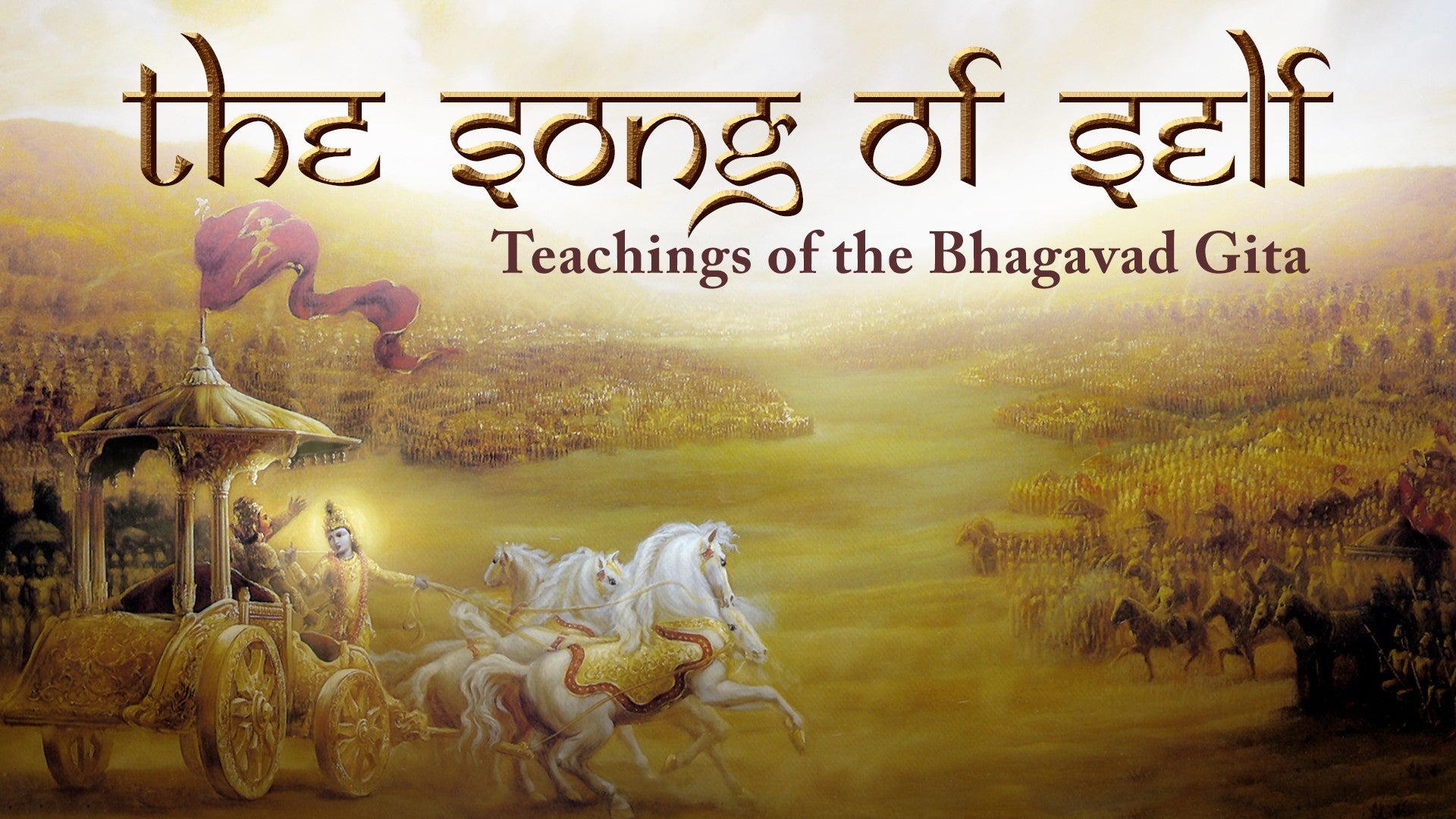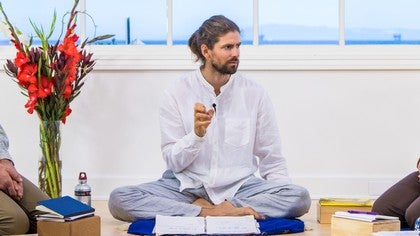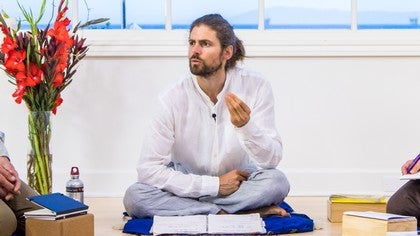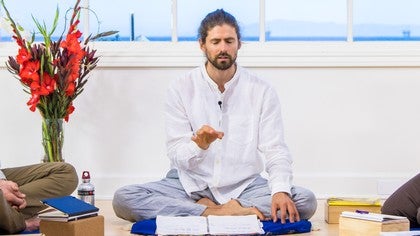Description
About This Video
Transcript
Read Full Transcript
So continuing now with the 60th verse, in this verse Krishna is continuing to describe how we can navigate this realm of sensory experience skillfully and he tells us here about the potentially troubling power of the senses that is more or less always inherent there within them. And he says, he addresses Arjuna by the name Kaunteya, this name we saw quite in the beginning of the chapter, we mention it certainly in verse 14. Arjuna son of Kaunteya, in other words Arjuna, you have come out of your mother's womb, you who are human. And he says, for a human being, even for a Purusha, an individual human being, who is Vipashchita means inspired, wise, of clear vision, even a wise, inspired person and Yattata, who is trying hard, who is earnest, who is committed to the path of integration, even for such a person. What can happen? The Indriyani, the senses or the powers of the senses and the body, so the Indriyani, this refers to the five sense organs and also the motor organs, things that allow us to pick things up, put things down and so on. They are Prematini, they stir things up and they can Haranti, you might recognize this verb Har to take away Prasabham, as if by force, Manaha, our mind. So the basic idea, Krishna is saying Arjuna, when you are a human being, even if you are very inspired, you have developed deep insight, clear awareness and you are very committed and you are striving earnestly, even then, the senses can still carry off the mind by their innate stirring up capacity, by their innate capacity to kind of agitate you and stir things up. Now, before we go on to what he says about that, is this true of the senses? So sometimes in the yoga system people refer to this beautiful image which is originally in the Upanishads, I think it's in the Katha Upanishad, in which this bodily system which is endowed with these tremendous powers of the organs of action that allow us to speak, to pick things up, put things down, to process and assimilate things, to recreate and the organs of our senses, these they get compared to a horse and chariot. So there is the image that there is a charioteer who is like the buddhi, that discerning, discriminating part of our awareness and the rains, they are like the manas, that part of our mind that connects our discernment to our external sense experience and the chariot is being driven by five horses. And what type of animal is a horse? Such a powerful athletic horse, yeah? Now I have a friend who works with horses and she has explained to me that when you work with horses you need to be very present with them because they are all different, they are all unique, just like our senses, they are all unique. Each of our senses has its own particular strengths we might say and weak points. If you think of horses left to their own devices they probably happily run in many different directions. But if you train your horses patiently, skillfully, working with their idiosyncrasies and their unique qualities and personalities, then you can teach them the joy of working as a cohesive unit. Once the horses learn experientially the reward, the thrill of allying their tremendous power and athleticism then they will happily run as a cohesive team and take your chariot where you direct it. But if you don't work patiently with them, if you don't get to know them intimately and you don't forge a deep relationship of mutual respect and understanding with them, then in your hour of need the horses might not go the extra mile for you. Similarly, if we don't pay the requisite attention to the needs of those bodily and sensory powers, it's going to be much harder to rely on them when we put to the test. So the idea, the sense is, it's their nature to help us sense and experience things. And what types of things can we experience? They are limitless, they are countless, there is so much newness in the beguiling realm of constantly changing nature. And so it takes this steady, loving, patient presence to become what we might call the master of the senses, like the master of the horses. The one who can happily, easily, skillfully lead the horses has spent time with them, knows them, respects them and so knows how to help them find that cohesion and work together. Similarly, the same idea for us, the senses, it's their nature that they can be disturbing because they have the power to help us have all types of amazing experience. Once we get to know them, then they can support us to have experiences which deepen our recognition of who we really are. And when we take our sense experiences back to their source, then the senses can, as it were, help us home to the full recognition of the fullness of the awareness that is animating and enabling each of our sense experiences. But Krishna is reminding us, sometimes it's normal, it's par for the course, that sometimes the senses might disturb you. So don't worry, don't be alarmed if you experience that. Sometimes people are practicing and they make a slip and they think, oh no, terrible. It's normal that sometimes our senses, they're very powerful instruments so they can easily make incisions or cuts in place we might not want them to. But as we work with them patiently, we get to understand them more and more. So again, steady patience is being advocated.
The Song of Self: Bhagavad Gita: Chapter 2
Comments

You need to be a subscriber to post a comment.
Please Log In or Create an Account to start your free trial.








